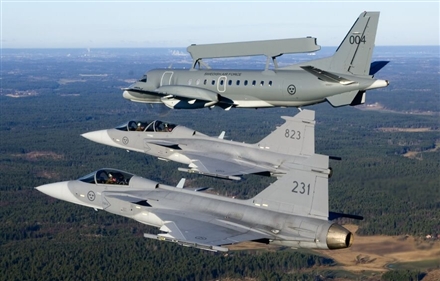
From Edward Lucas, European Voice: In Iceland, after much haggling and delay, Finland and Sweden are to take part in a new Nordic Air Policing mission, led by NATO members Norway and Denmark, from 2014. . . .
The Swedish and Finnish governments are more positive about their involvement in Iceland than NATO is. The alliance insisted that the non-members’ involvement must be strictly on an unarmed basis. For Finland in particular, the idea of sending its airforce anywhere where it cannot defend itself is hard to swallow.
NATO’s reluctance has nothing to do with Iceland. It relates to another problem: Israel. The US is pushing for closer co-operation between its most important alliance and its most important ally. (President Shimon Peres visited NATO headquarters this week.) But other alliance members, chiefly Turkey, fiercely oppose better ties with Israel. Any co-operation with non-members in northern Europe, they fear, will set a precedent for closer links with the detestable Zionist state in the east.
That is a pity. North-east European security is a real problem for NATO, the only place where its core mission of territorial defence is still necessary in practice. Its Eagle Guardian contingency plans to defend the Baltic states and Poland are useless without Finnish and Swedish co-operation (in particular, making sure Russia could not seize the Swedish island of Gotland). It should be possible to ring-fence this issue from others.
As NATO vacillates, Nordic defence co-operation strengthens, and the US builds ever-closer bilateral military relationships with Finland and Sweden. These are stronger than with many countries that are nominal NATO members. This year Swedish planes took part for the second time in the coveted ‘Red Flag’ airforce exercises in Nevada, for example. No prizes for guessing why.
Edward Lucas edits the international section of The Economist. (photo: Saab)
Image: saab%203%2014%2013%20Sweish%20Gripens%20and%20Saab%20340%20Erieye.jpg
